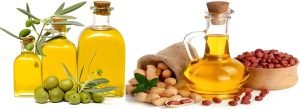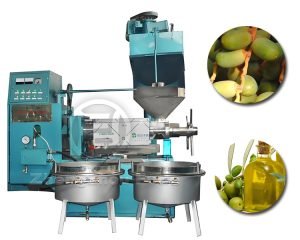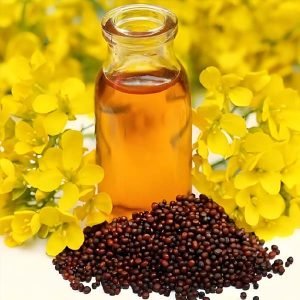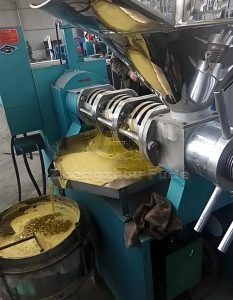Understanding oilseeds before starting an oil press?
Understanding the raw materials is the foundation of a successful oil processing business. Different seeds have unique properties that directly impact how you process them and the equipment you need. Let’s explore why this knowledge is so important before you invest.
Why Must You Understand Oilseeds Before Investing in Oil Pressing Equipment?
Understanding oilseed characteristics like oil content, hardness, and size is essential. It guides your choice of pretreatment, the right type of press, and necessary refining steps, preventing costly mistakes.

Knowing your oilseeds deeply affects your entire operation. Each seed type has specific needs. For example, hard seeds might need cracking or flaking first. Oily seeds might need a different press screw design than less oily ones. Understanding these details helps you select the most efficient and effective machinery from suppliers like us, Zhengzhou Fude Machinery. We offer a wide range of equipment designed for various seeds.
Soybeans (Soybean): One of the World’s Most Important Oilseeds, What Are Its Oil and Processing Characteristics?
Considering soybeans for your oil business? They are globally significant but have unique processing needs. Ignoring these can lead to inefficiency and poor oil quality problems.
Soybean oil is versatile for food and industry. Processing usually needs flaking and solvent extraction for large scale. For smaller or specialty markets, high-efficiency screw presses are used. Refining is almost always required.
Soybeans have relatively low oil content (around 18-22%) compared to other seeds. This makes efficient extraction crucial. Large-scale operations overwhelmingly use solvent extraction. However, mechanical pressing with robust screw oil presses is a viable option, especially for producing non-GMO or organic soybean oil, or for medium-scale plants where solvent extraction isn’t feasible. Proper pre-treatment is vital for mechanical pressing success.
Understanding these specifics helps you plan your soybean oil plant effectively. We can supply individual machines or a complete, customized soybean oil processing line.
Rapeseed/Canola (Rapeseed/Canola): High Yield and Adaptable, What Are the Differences in Oil Between Varieties?
Canola oil (low erucic acid) is a popular, healthy edible oil. Traditional rapeseed oil (high erucic acid) is mainly for industrial use. Both require similar pressing but different final refining.
Rapeseed is a major global oilseed crop. The key difference lies in the erucic acid content. Canola was specifically bred to have very low levels (<2%) of erucic acid, making it safe and desirable for cooking. High-erucic acid rapeseed (HEAR) oil has industrial applications due to its specific properties. Processing typically involves cleaning, flaking, cooking, and pressing using efficient screw oil presses, like our single screw or double screw models.
Knowing whether you’ll process Canola or HEAR is crucial for designing your plant and targeting your market. We provide adaptable oil processing lines suitable for both, with appropriate refining options.
Sunflower Seed (Sunflower Seed): A Representative of Healthy Edible Oil, What Are the Requirements for Oil Pressing Equipment?
Sunflower oil is valued for its health benefits. Seeds often benefit from dehulling before pressing. Equipment like our automatic temperature control oil presses ensures quality. Refining level depends on desired product.
%Sunflower seeds ready for pressing
Sunflower seeds come in two main types: oil-type (high oil content, thin hulls) and confectionary-type (lower oil, thicker hulls). For oil production, the oil-type is preferred, with oil content often exceeding 40%. A key decision is whether to dehull the seeds before pressing. Dehulling removes the fibrous shell, increasing the press capacity, reducing wear on the screw press, and resulting in higher protein meal. However, it adds a dehulling machine to the line.
Whether you aim for artisanal cold-pressed oil or large-scale refined sunflower oil, we have the equipment solutions, from individual presses to complete, customized production lines.

Sesame Seed (Sesame Seed): Fragrant Oil is Good but Volume is Not Large, Which Oil Pressing Method is Suitable?
Sesame oil, known for its strong flavor (especially when toasted), is often produced in smaller batches. Hydraulic oil presses are excellent for high-quality cold-pressed oil. Efficient small screw presses are also suitable.
Sesame seeds have a good oil content (around 50%). The processing method significantly impacts the final oil’s flavor profile. Light sesame oil (cold-pressed or expeller-pressed from raw seeds) has a mild, nutty taste. Toasted sesame oil (seeds are roasted before pressing) has a much darker color and intense, smoky flavor. Accurate temperature control during roasting (roasting machine) is crucial for the desired flavor of toasted oil. Due to the high value and often smaller processing volumes, specific press types are often preferred.
Sesame oil production offers a niche market opportunity. We can help you select the right roasting and pressing equipment based on the type of oil you want to produce and your expected volume.
Palm Fruit/Palm Kernel (Palm Fruit/Kernel): The Tropical Oil King, How Are Their Oils and Processing Methods Different?
Palm is a huge source of oil, but it’s confusing. Palm oil and palm kernel oil come from the same fruit but are totally different products. Using the wrong process will simply not work.
Palm oil comes from the fleshy fruit part (mesocarp). Palm kernel oil comes from the seed (kernel) inside the nut. They require completely separate processing lines and equipment.
Understanding the distinction is critical. Palm oil (from the fruit flesh) is rich in palmitic acid and beta-carotene, semi-solid at room temperature. Palm kernel oil (from the seed) is chemically more like coconut oil, high in lauric acid, and solid but brittle at room temperature. Their processing methods are entirely different and cannot be done with the same machines interchangeably.
Investing in palm processing means choosing which oil (or both) you want to produce, as they need distinct processing lines. We provide solutions for both palm oil and palm kernel oil extraction.
How to Choose the Right Oil Pressing Equipment Based on Oilseed Characteristics and Market Demand?
Select equipment by matching it to your specific oilseed(s), target daily output, desired oil quality (crude, refined), budget, and who you plan to sell to. Consider our complete production lines.

Making the right choice involves balancing several factors. As a manufacturer with extensive experience (since 2005), Zhengzhou Fude Machinery can help you navigate these decisions. We offer everything from single machines to fully customized, turnkey plants, selling directly from our factory to give you better value. Our equipment is used in over 120 countries.
Matching Needs to Solutions
| Your Need | Example Seed | Scale Example | Quality Goal | Our Potential Solution |
|---|---|---|---|---|
| Small Community Oil Service | Sunflower | < 5 TPD | Filtered Crude | Single Screw Press + Plate Filter Press |
| Medium Edible Oil Bottler | Rapeseed/Canola | 20 TPD | Fully Refined | Pre-treatment, Multiple Screw Presses, Batch Refining Line |
| Large Industrial Processor | Soybean | 100+ TPD | Fully Refined | Complete Turnkey Plant with efficient pressing and continuous Refining |
| Specialty High-Value Oil | Sesame (Toasted) | 1-2 TPD | Filtered | Roaster, Hydraulic or Small Screw Press, Filter |
Choosing the right equipment is a partnership. We use our expertise to help you analyze your needs and select the optimal, cost-effective solution, providing full service support from design to installation and beyond.
Related recommendations
-
Analysis of raw materials for oil press processing
41Which crops and seeds can be used for oil extraction?Determination of raw materials for oil processingWhat are the main classifications of common oil materials?Classifying by Source PartClassifying by Oil ContentCharacteristics and oil yield of di...
View details -
Is olive oil produced by an oil press
216The process of extracting olive oil involves multiple steps such as picking, cleaning, crushing, pressing, separating, and filtering the olive fruit. It is recommended to use a Fude oil press to obtain high-quality olive oil products.
View details -
What does an oil press do?
285Oil press is a kind of equipment used to extract oil from oil crops, which can press olives, peanuts, palm, soybeans and many other oils.
View details -
What are the components of the spiral oil press body
227The main body of the spiral oil press is composed of key parts such as the press chamber, spiral shaft, feeding hopper, cake calibration mechanism, gearbox, and motor
View details
 Oil Press Equipment and Oil Refining Machinery for Sale – Start Your Oil Press Business
Oil Press Equipment and Oil Refining Machinery for Sale – Start Your Oil Press Business




HelloPlease log in